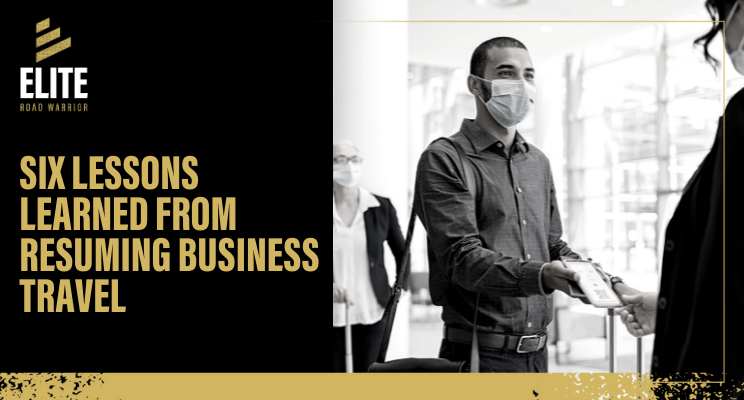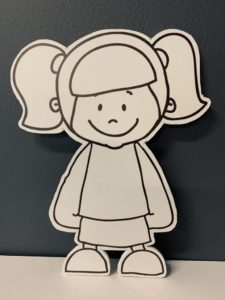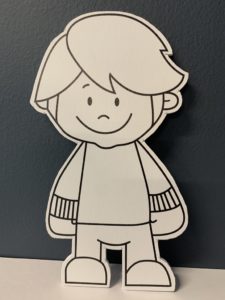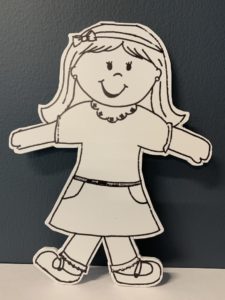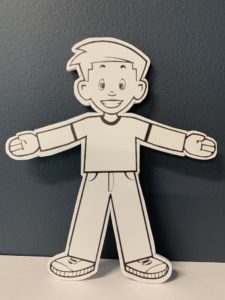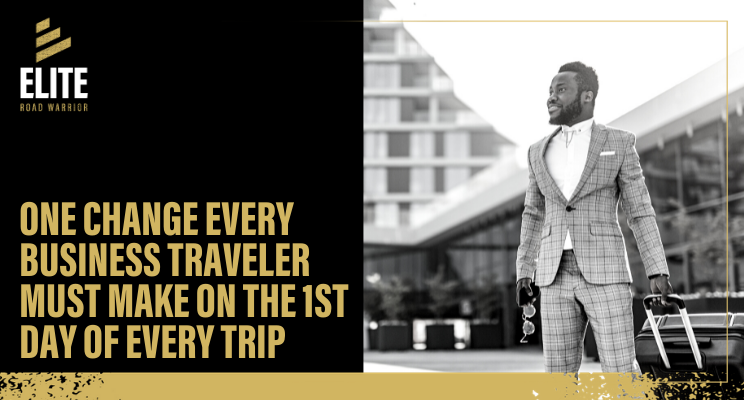Elite Road Warrior Group found in its research once COVID hit back in March 2020 that the forced break affected business travelers in different ways. Here were four commonalities:
- We were far more exhausted with the grind of the road than we ever imagined.
- We were far more disconnected at home than we ever realized.
- Some were surfing flights and hotels out of habit, but more like an addiction.
- We flat out missed the routine of the road.
And depending on what puts you on the road in the first place, your grounding was brief, started sooner than others, or you may be like me where you’re slowly migrating back to the road.
A couple of months ago I received the call for an approved trip like a lefty in the bullpen getting called into the game “all of a sudden.” (Insider information: I’m left-handed and love sports). I was surprised, then thrilled, then had all of the usuals to get booked immediately and last minute: flight, hotel, and rental car.
Six Lessons Learned From Resuming Business Travel
LESSON ONE – I’m out of practice and I’m a professional
I’ve been on a handful of trips for pleasure – with my wife, with the Buck fam, but nothing for business. In fact, I remember my last trip like it was yesterday. I was in Las Vegas for a conference that was canceled at the last minute but I still had some key meetings on the books. Or so I thought. Even they didn’t show up those days before Covid shut everything down.
I was supposed to fly to Phoenix for training but was asked to reschedule to the following week since a few people were out sick. Hmmm looking back. I was bummed not to catch my 10th year in a row of spring training for the Chicago Cubs and White Sox but no worries, I’ll catch in next week. Again, so I thought. I flew home on March 10, 2020, and hadn’t been on another business trip flight until this summer.
I was excited to pack again, drive to the airport, and get my road warrior groove back on. Then I…
- Forgot My Mask in the Car – I couldn’t load the long-term parking bus to the terminal and that put me behind.
- Forgot a few items I usually carry in my “carry a controlled substance” lunchbox I bring with me on every trip.
- Dropped my license on the car rental exchange at the exit of National Car Rental.
- Forgot to ask for a certain location in the hotel I prefer. (higher floor to get my walk in and towards the end since it’s quieter.)
- Forgot my toothbrush – Who does that? I was the rookie who had to get the one I wouldn’t use for my dog at the front desk.
- Forgot my Not Forgotten Journal to write in for my wife.
- I lost a receipt.
All rookie mistakes from a professional business traveler. But I’m out of practice and simply need to get my reps back in.
Lesson One Takeaway – Double-check everything. Think through your trip mentally, every aspect, to minimize preventable complications.
This is coming from the voice of experience.
LESSON TWO – Road Warriors look and respond differently
Every business traveler was obvious. Not just by how we dress differently than a vacationer, but we actually had the face of joy that was obvious. Conversations always started with: “Is this your first trip back? Me too.” Or “Is this your first trip back? You were able to come back that long ago? How?”
Quick story: My first night on this inaugural trip there was a cocktail welcome party and one thing I noticed right away from people I knew from this industry: COVID was very good to them (if you know what I mean) = Overweight and much higher tolerance and I don’t mean of me. My mouth said, “Good to see you, what’s new?” My mind said, “Dude, you’re huge. Did you do anything at all besides eat and drink while not traveling?”
I also quickly noticed the response to COVID is stronger than talking about religion or politics.
- Do they want to shake hands or fist bump, elbows? I had someone I know very well stand yards away from me, very cold, and said “No thank you” on the outstretched hand. #SeriouslyAwkward.
- Have they had COVID and what was their experience?
- How do they feel about masks? Vaccination? “Don’t get me started on that one” is something I heard over and over.
- Those who like to talk about religion and politics and I mean in the context of trying to debate with you, not general inquiry and conversation, had a new hot topic: How do you feel about _______ with COVID?
There was never a moment short of conversation and it was hard to break past “all things COVID,” but it is what it is and this too shall pass but it’s definitely the focal point on everyone’s mind getting back to the road.
Lesson Two Takeaway – Know it’s going to come up and how you want to handle the conversation.
I found myself asking more questions and making a game-time decision on how I wanted to respond and how far I was willing to go down the spiral.
LESSON THREE – Road Warriors have been caged animals and are acting like it
My first business trip was in South Miami Beach of all places. Can’t you ease me in like Omaha or Sheboygan? Miami Beach. Not a fan of the heat in June, but it got me back on the road. Just saying. But as my wife would say, “Suck it up, Buckley.”
The first full day at the expo part of the conference, the 3 pm Happy Hour was hit hard and I mean hard. Nobody was at the booth and it seemed like everyone was at the bar. Now, mind you it was only beer and wine, but it was like a bar outside of an AA meeting. The temptation was just too much.
Then, my phone blew up with a message for everyone to hit the full bar evening event, then the after-party after the after-party. Combining little to no business travel then this location meeting opportunity, the caged road warrior was seemingly too much to handle for most people.
I saw more road warriors with hangovers, exaggerated stories to tell, and more regrets than usual every morning of this first trip. Between us girls, it was disappointing and unnecessary.
Lesson Three Takeaway – Choose ahead of time how you plan to act.
Avoid being “that guy” or “that girl” when it’s within your control. For example, I intentionally did not go out with one group knowing where it would lead. You have to be intentional and the result was a bill they can’t justify and a hangover they couldn’t overcome. All the while, I had a great night of sleep, read, then went for a run the next morning on the beach, then finished my morning routine with a great, healthy breakfast. Choices, my fellow road warrior. Choices.
LESSON FOUR – Traveling right now is more exhausting than ever
I thought getting back to the road after an extended break would bring me energy. After all, I’m the Energizer bunny. But I was surprised, just on my last couple of trips, how little adjustments due to COVID and getting out of my road routine for so long added to the stress and exhaustion of business travel. Here are three of these adjustments:
- Wearing masks – I’m in the Chicago area, so if you’re going into a store a mask is required, but other places are optional. So, if I do wear the mask, it’s not very long. But now with business travel, you have to wear a mask.
- In the Airport – long-term parking bus to the terminal
- On the Plane – This one is my new nemesis since I use reading glasses and the mask makes them fog up.
- In the Hotel – Lobby areas, hallways, anywhere with people.
- At Restaurants
- Comfort level of a customer – This continues to surprise me but then again, not really. Every person has an opinion and certain things like I mentioned earlier (like religion or politics) can get certain people amped up very quickly. But how each individual, and in this case customers, react takes it to a whole new level. It’s the new hello. How are you? Covid comment.
- I’ve had certain customers or potential clients who are completely fine with meeting, in fact, they cannot wait and give me double the amount of time because they’ve been in lockdown!
- Other customers have very specific guidelines on what they’ll allow to make a meeting happen. And I’ve even had meeting requests completely rejected and kept to a phone call or at best a video call due to their comfort levels.
- Continual People – I’ve just not been around THAT many people especially either those I don’t know or in a social setting. It just exhausted me. It felt like work and wore me out.
Lesson Four Takeaway – Plan on the added exhaustion and have a healthy way of handling this extra stress.
Most justify their eating or drinking, but not an Elite Road Warrior. You know the added stress is coming so make the most of it.
LESSON FIVE – My family struggles with my absence far more
Pre a world pandemic, my family was used to Dad being gone and a lot. When I was gone I was gone, but the blessing was when I was home I was home.
But the business travel shutdown put Dad on lockdown and ALWAYS around and I mean always. It was a transition for them to get used to that, but obviously, enough time allows us to adjust to a new normal which is Dad always home.
My first trip was literally last minute and literally caught the fam off guard. It made it harder on them because it was over the summer, so they felt my absence at the highest level.
As a result, I needed and wanted to be extra sensitive to staying in consistent contact with my wife and kids while going back to the road. Those touches were all the more important.
To become an elite road warrior is to change your mindset from a check-in guy or girl to a connect-in guy or girl and learning to leverage the road to grow these relationships in a unique way that only the road can provide if leveraged.
In fact, Elite Road Warrior Group has created products to help to stay connected with those you love back home and become that elusive connect-in guy or girl. Two specific products I use on every single business trip:
- The Not Forgotten Journal – This is for my wife. I take just two minutes a day to write something to her. If there’s one thing that I’ve done that has had the biggest ROI it’s this journal and this two minutes. Game changers, road warriors. I write in the upper left corner the city I’m in, then write the date in the upper right corner. And then take two valuable moments to write something, anything to my wife.
- Flat Kiddos – If you have kiddos, this is a must. My kids absolutely love when they can see their own flat kiddo that they colored all along my business trip. At the airport, in the rental car, in my hotel, those I meet with, places that are creative and humorous. It only takes a couple of seconds and being more concerned about including my kids, then worrying about what people I don’t know and will never see again think of what I’m doing in the moment. In fact, most of the time their respect for me increases and it shows them my commitment to my family.
There will be links to purchase your own Not Forgotten Journal and Flat Kiddos in the show notes.
Lesson Five Takeaway – Your sensitivity to those back home is critical and an opportunity to show them love when they need it the most.
If you have a significant other or family back home, make sure you take this lesson to heart and be ultra-sensitive.
LESSON SIX – My road habits are more important than ever getting back on the road after a reset
Road Warriors and road habits are one and the same. We’re one big road habit. And oddly enough, the forced break from business travel gives us an opportunity to reset our habits.
This is a gift, but more important than ever the rare opportunity to leverage this gift is right now. Right when you’re getting back to business travel. In fact, the entire premise of Elite Road Warrior is the six energy habits framework. A quick review:
Three Physical Energy Habits:
- MOVE
- FUEL
- REST
Three Mental Energy Habits:
- PERFORM
- DEVELOP
- CONNECT
I cannot implore you more if you desire to become an elite road warrior to leverage this reset and revisit your road habits.
Are you unsure or simply unaware of your habits? Go into your next trip with eyes wide-open of why you’re doing what you’re doing. It’s eye-opening and very revealing.
1st Action Step: Buy the Elite Road Warrior book – physical, digital, or Audible versions. If you already own a copy, revisit the content.
2nd Action Step: Continue listening to The Elite Road Warrior Podcast. Stay current. Go back and listen to past episodes that you missed. Re-indoctrinate yourself in all things Elite Road Warrior to make the most of this lesson learned.
Lesson Six Takeaway – Leverage the gift of getting back on the road to explore the why behind your habits and make the necessary changes right away.
Remember, an Elite Road Warrior does not happen by default, but with the intent that can be re-ignited right now with the chance for a do-over with getting back to the road.
Let’s Land This Plane
The purpose of this is so you can use this reset to develop good road habits to allow you to be your best on the road in the three focuses of Elite Road Warrior:
- Work
- Health
- Home Life
Here’s a quick review of the lessons learned from resuming travel and their equally important lesson takeaway:
LESSON ONE – I’m out of practice and I’m a professional
Lesson One Takeaway – Double-check everything. Think through your trip mentally, every aspect to minimize preventable complications
LESSON TWO – Road Warriors look and respond differently
Lesson Two Takeaway – Know it’s going to come up and how you want to handle the conversation.
LESSON THREE – Road Warriors have been caged animals and are acting like it
Lesson Three Takeaway – Choose ahead of time how you plan to act.
LESSON FOUR – Traveling right now is more exhausting than ever
Lesson Four Takeaway – Plan on the added exhaustion and have a healthy way of handling this extra stress. Most justify their eating or drinking or viewing, but not an elite road warrior. You know the added stress is coming so make the most of it.
LESSON FIVE – My family struggles with my absence far more
Lesson Five Takeaway – Your sensitivity to those back home is critical and an opportunity to show them love when they need it the most.
LESSON SIX – My road habits are more important than ever getting back on the road after a reset
Lesson Six Takeaway – Leverage the gift of getting back on the road to explore the why behind your habits and make the necessary changes right away
You can find everything referenced in this episode, the free resource: 10 Business Travel Hacks Guide in the show notes at www.EliteRoadWarrior.com/101/
I’d love to hear from you so connect with me on my primary social media sources:
- LinkedIn – Bryan Paul Buckley
- LinkedIn company page – Elite Road Warrior
- Instagram – EliteRoadWarrior
So, wherever you are on the road, do something, anything, just not nothing to master the business travel life.
Leverage this reset of getting back on the road for business travel to help you become and remain an Elite Road Warrior today to eliminate burnout and exceed results.
You Got This!
